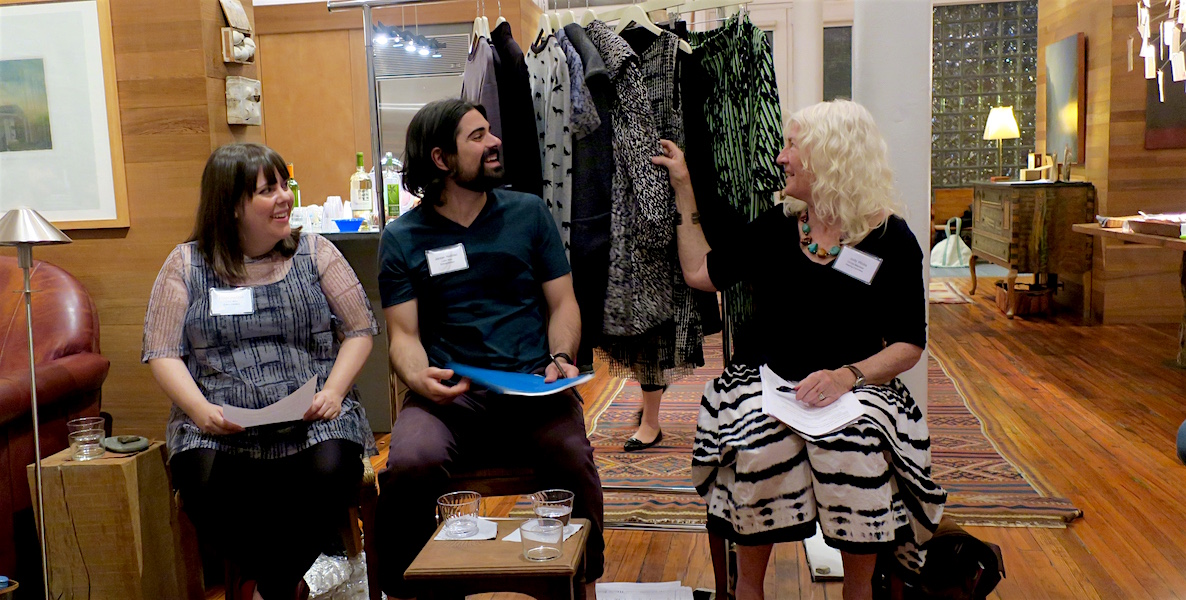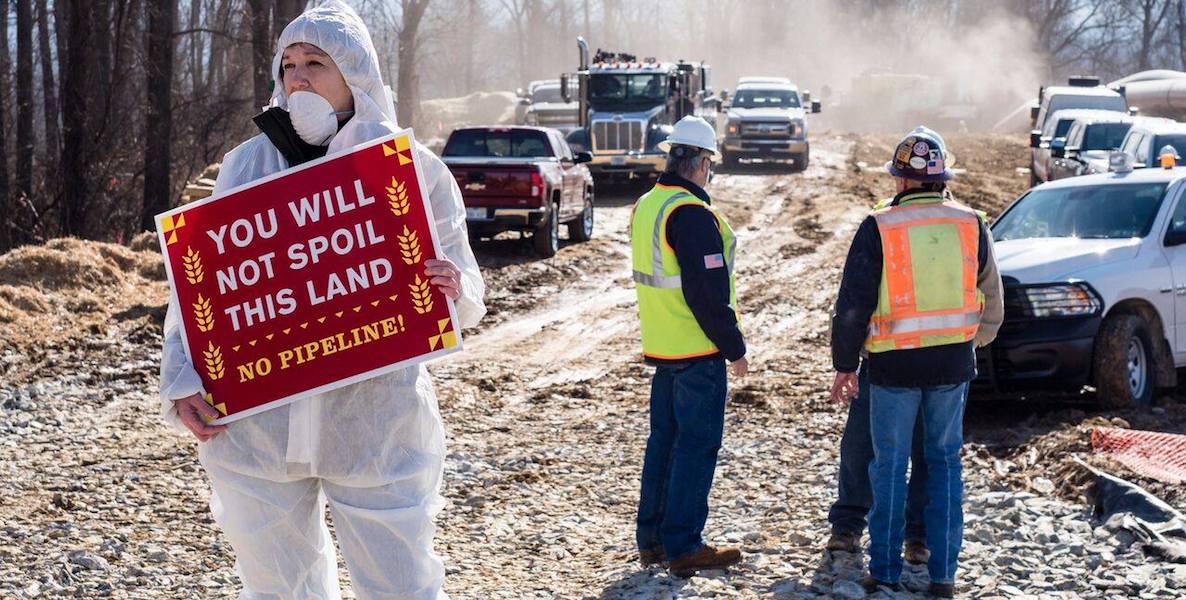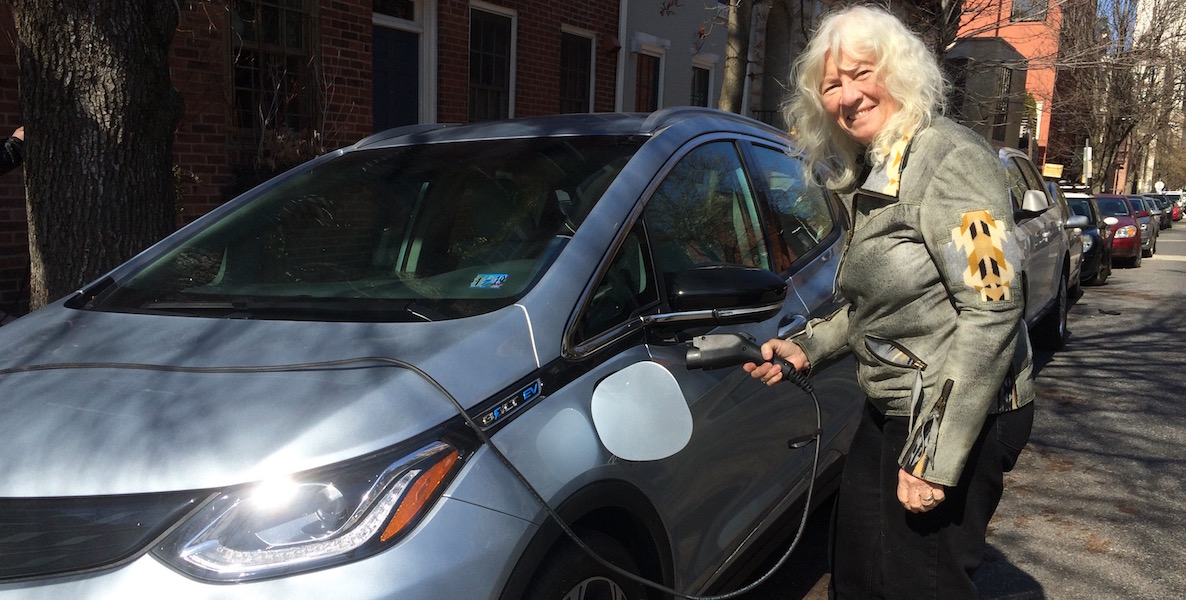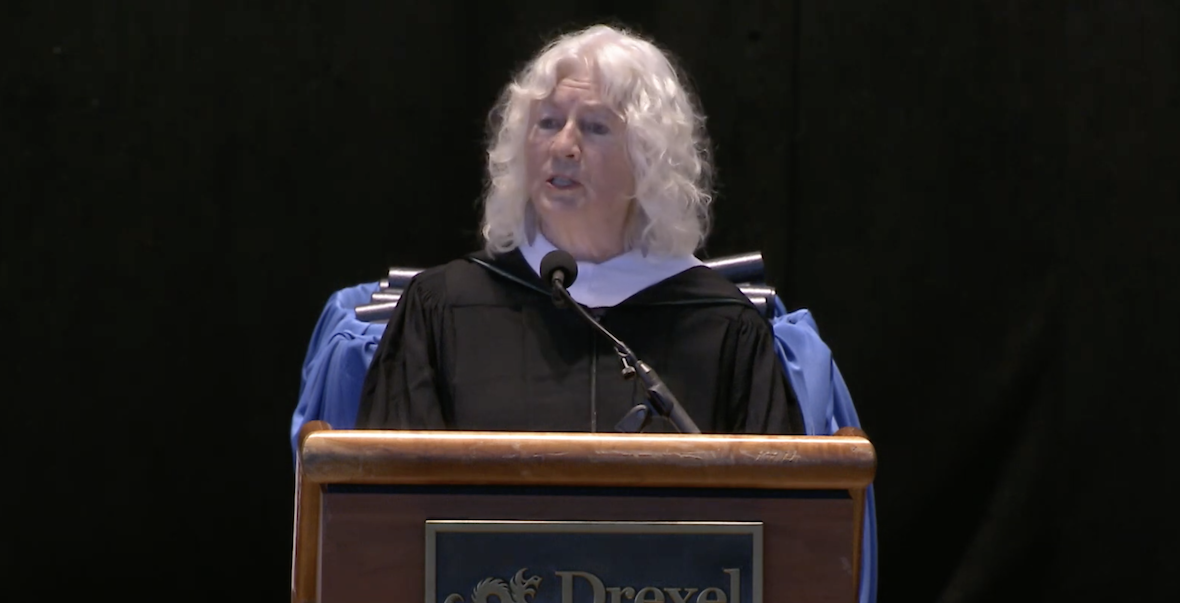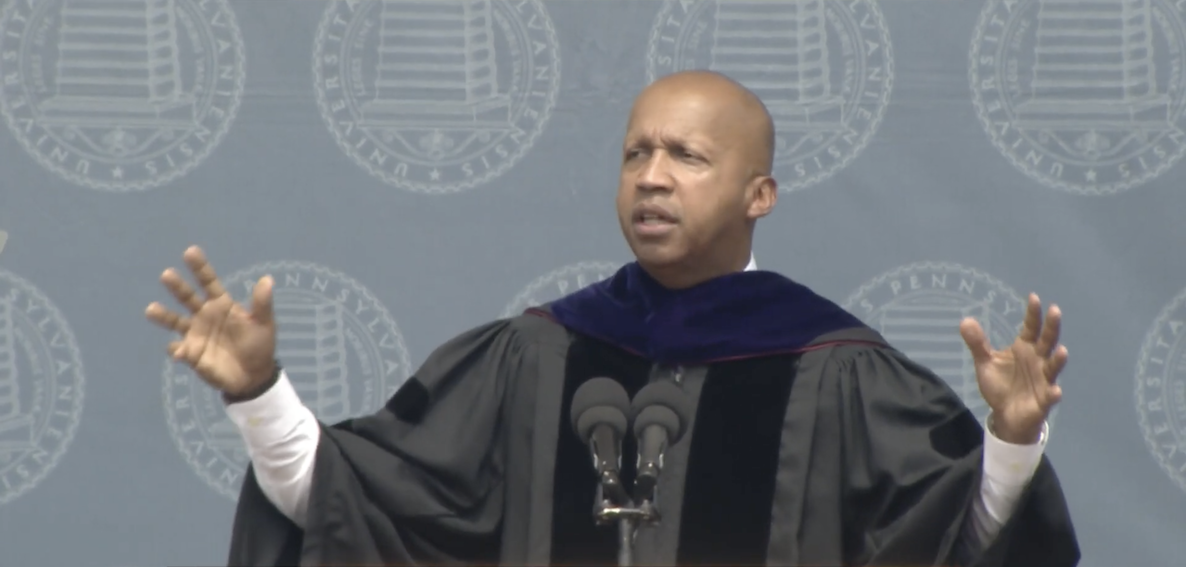Good Evening. Thank you, Provost Blake and Dean Schultheis, for the honor I have in being here with you today. And thank you, Class of 2019. I am privileged to share this joyful time with you, along with your loving families, friends and colleagues.
As I was preparing to address you today, I suddenly realized that my own college graduation on June 11, 1969, was exactly 50 years ago, almost to the day. I wondered, “What conditions did my generation confront on graduation day and how do they differ 50 years later?”
Most on the minds of the class of 1969 was the Vietnam War — a war started by the generation before us, and left for us to fight in and to fight against. On my graduation day, college deferment ended and many young men in the class of ’69 were immediately drafted into the military.
Narrow self-interest is not an option. There is only one interest—our common interest.
That was a tough time, but let us consider what problems the previous generations have left for you to tackle. While the class of 1969 fought to end the war in Vietnam, your generation is tasked to end the war on nature. While my generation’s challenge was to save lives, yours is to save life on Earth.
![]()
Today, some may predict that it’s too late—that the rapid degradation of our natural environment, rising toxicity and a warming and increasingly unstable climate cannot be stopped before Earth becomes uninhabitable. Or, that global warfare over our planet’s remaining resources will wipe us out. Others may say, “There is no problem,” or “It’s not your problem.”
You are graduating at a pivotal time—what some call The Great Turning—a transformational moment in human evolution when there is a small window of opportunity, likely our last, to transition from a life-destroying economy to a life-sustaining one. This transition also provides an opening for us to reassess the fair distribution of resources among the world’s people and achieve greater economic justice. This is not a time for the faint-hearted or hopeless. This is a time for extraordinary courage, creativity, and yes, love—the fearless, ferocious love that comes when we protect what we hold most dear.
Don’t get me wrong. I’m not suggesting that this is just your problem to solve, nor could you succeed alone. Planet-saving is everyone’s job.
While Vietnam pitted generation against generation and the Class of 1969 against our parents, today we have the opportunity for a powerful intergenerational alliance that can turn the tide of history. By working together for the good of all, we can halt exploitation and engage in reciprocal, win-win relationships with one another and with nature. Just in time, we can bring to an end the war on our home planet—the war on our rivers, oceans, and aquifers, on our air and topsoil, the war on all living creatures. A recent United Nations report warns that human activity is putting over 1 million species at risk of extinction within decades. Foolishly, this is a war that we are waging against ourselves and the generations to come.
![]()
Fifty years ago, Dr. Martin Luther King, Jr., called for a “Revolution of Values.” He said, “We must rapidly begin the shift from a thing-oriented society to a person-oriented society.” Now is the time for us to come together to make this revolution a reality.
We have been conditioned to seek the lowest price when we buy, the highest price when we sell, and the largest return on our investments, without consideration for the consequences of our economic transactions on other people and the planet. But wealth is not simply how much is in our bank accounts. Our shared wealth—clean water to drink, fresh air to breath, healthy food to eat, and a joyful, inclusive community in which to belong—is much more valuable!
When I started the White Dog Cafe in 1983, not far from the Drexel campus, I had not yet realized what I am sharing with you today. My business taught me. It was through my work that I discovered that business is about relationships, money only a tool, and that the purpose of business is to serve—to serve customers, employees, community and nature. Rather than maximizing profits, my goal was maximizing relationships—positive relationships with all those I connected with while doing business, and in my relationship with nature as well.
Rejoice that you are simply alive on this beautiful planet, on this day of celebration that we share.
A farmer who supplied our restaurant told me that good farming is the balance between masculine energy and feminine energy—energies that each of us contains regardless of gender. He characterized masculine energy as efficiency and feminine as nurturing. If you have too much masculine energy and not enough feminine, you might have a well-run farm, but without the nurturing, you will not have a high-quality product. On the other hand, if you have too much nurturing and not enough efficiency, you might have great tomatoes and happy chickens, but you may well go out of business.
When I first heard about the cruel factory farming of pigs, I realized that our whole economy was terribly out of balance—too much masculine energy, too little feminine.
![]()
Over many years, the White Dog Cafe developed a network of local farmers who supplied us with meat and poultry from animals raised out on pasture with care and respect, and fruits and vegetables produced without pesticides and fertilizers harmful to the soil. During those days, it was hard to find such farms. Local food became key to our 3 brand, and unique in Philadelphia in the 90’s. This is our market niche, I thought, our competitive advantage. This is all about us.
Then I had an awakening.
I said to myself, “If you really do care about the animals, the small farmers forced out by large corporations, the dying rural communities, the environment polluted by industrial agriculture, and the consumers unknowingly eating food laced with drugs and pesticides, then you would share your supply list and your knowledge with your competitors.”
Yes, you would share with your competitors.
I moved from competition to cooperation, from hoarding to sharing, and from fear to love. The more I shared, the more I wanted to share, the more others around me shared.
Up until then, I had thought it was enough to have sustainable practices within my business—composting, solar hot water, 100 percent renewable electricity, paying a living wage—but that was not enough. There is no such thing as one sustainable business; we can only be a part of a sustainable system.
Though we had successfully grown a network of local farmers supplying my restaurant, I turned my attention to growing a larger network—a sustainable food system that would strengthen family farms to feed our region. I used my own profits to start a not-for-profit organization to connect local farmers with the urban marketplace and loaned $30,000 to a farmer to buy a refrigerated truck so that he could deliver pasture-raised pork to other restaurants in town.
My decision to share set the course for the rest of my life. I went on to found a local business network and then a national alliance to support local businesses building sustainable local economies across the country. I continue this work today with Proud Pennsylvania, an initiative to build local supply chains between urban and rural communities that produce our basic needs of food, fiber, and energy. Local production moves wealth from distant corporations to our communities, while increasing our resiliency to withstand the effects of climate change. Many young people are finding opportunities for new businesses and meaningful employment in building strong local economies, which could well determine the survival of future generations.
Don’t get me wrong. I’m not suggesting that this is just your problem to solve, nor could you succeed alone. Planet-saving is everyone’s job.
Though it eventually benefited my life, sharing with my competitors was not an easy decision to make. At first, I was afraid—if I shared, I would lose my competitive advantage. My sales might decrease, my profits go down.
I didn’t make the decision because I figured out in my head that it was the right thing to do. I did it because of my love of animals, of nature, of community. That love was greater than my fear.
In that life-changing moment, I moved from me to WE. I moved from competition to cooperation, from hoarding to sharing, and from fear to love. The more I shared, the more I wanted to share, the more others around me shared.
Moving from me to we is the first step in planet saving, as it is for addressing the challenges of ending inequality.
In this technological world with ready access to limitless information, we can become overwhelmed, even paralyzed because we don’t think we know enough to act. But there are many answers that we cannot learn by simply absorbing information. We all have the ability to connect with our intuitive wisdom and compassion, and join heart and mind to lead with love.
Narrow self-interest is not an option. There is only one interest—our common interest. Understanding that will determine if humankind will take our rightful place in the web of life, or perish from this Earth.
We’ve made progress in improving business practices, yet the planet is declining and inequality rising. Much more change is needed—a true “Revolution of Values.” We are ready for your fresh young leadership.
Class of 2019, let us unite across the generations to:
Re-build our economy to one that works for the Earth and for all of us,
Re-imagine a lifestyle that is as much about Life as about style.
Re-generate our natural environment,
Re-purpose our lives from consumption to service,
Re-balance our masculine and feminine energies,
Re-connect with each other and with nature,
And most of all – Rejoice –
Rejoice in graduating from this fine institution,
Rejoice in the enduring friendships you have made here,
Rejoice in the many opportunities before you to contribute to a better world,
Rejoice that you are simply alive on this beautiful planet, on this day of celebration that we share.
Congratulations to each of you! Walk tall for all!



